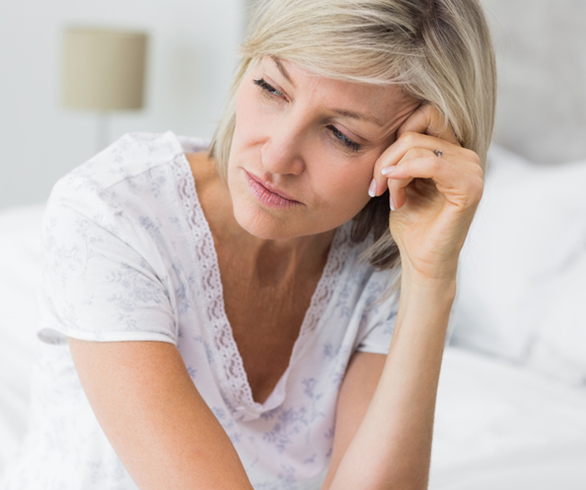While it is widely known that fluctuations in hormones can affect depression in females, it is unclear why some women experience these changes more strongly than others. A new study published in the journal of The North American Menopause Society (NAMS) suggests that this may correlate to estradiol levels.
The study looked at more than 1,300 regularly menstruating premenopausal women aged 42 to 52 years. Its overarching goal was to understand why some women are more vulnerable to depression, despite the fact that all women experience hormone fluctuations.
Researchers focused on the effect of estradiol, the predominant estrogen present during the reproductive years, on women. Estradiol modulates the synthesis, availability, and metabolism of serotonin, which is a key neurotransmitter in depression. Among adult women, the duration of exposure to estradiol varies largely.
The study found that longer duration of estrogen exposure was significantly associated with a reduced risk of depression—especially during the transition to menopause and for up to 10 years afterward. What’s more, a longer duration of birth control use was associated with a decreased risk of depression.
“Women are more vulnerable to depressive symptoms during and after the menopause transition because of fluctuating hormone changes,” says Dr. JoAnn Pinkerton, executive director of NAMS. “This study additionally found a higher risk for depression in those with earlier menopause, fewer menstrual cycles over lifespan, or more frequent hot flashes. Women and their providers need to recognize symptoms of depression such as mood changes, loss of pleasure, changes in weight or sleep, fatigue, feeling worthless, being unable to make decisions, or feeling persistently sad and take appropriate action.”








